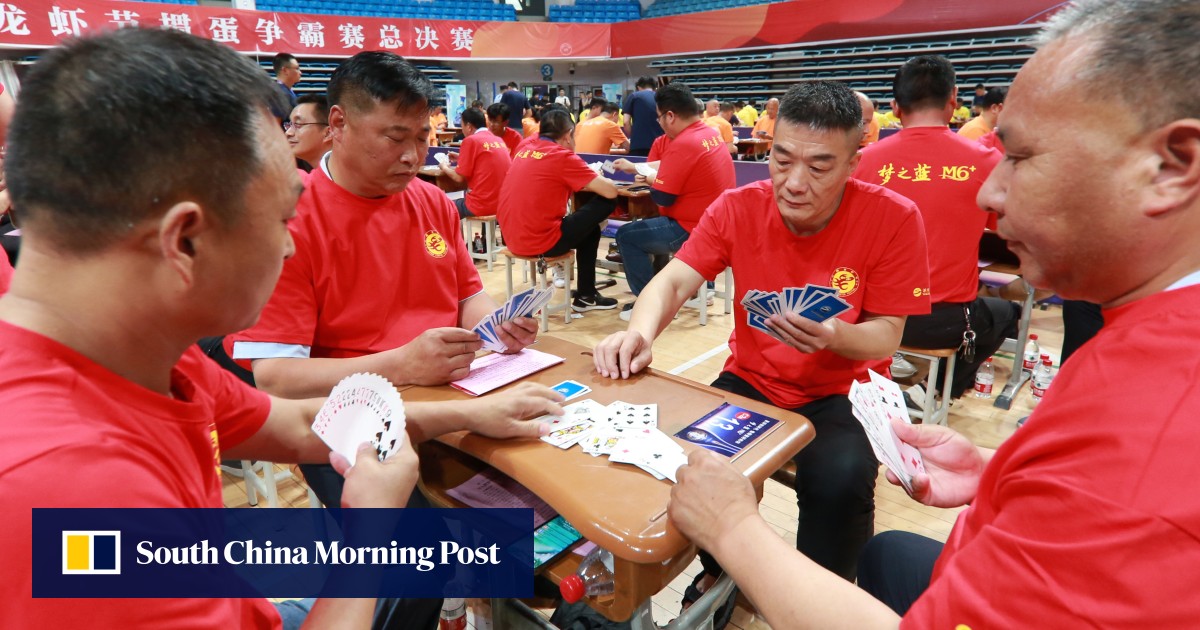Guandan – literally “throwing eggs” in Chinese – had taken public sector workers by storm after being officially endorsed by party bureaucrats, and once seemed poised to become a new national sport.
However, the game has fallen out of favour in recent weeks over concerns that it may fuel a passive attitude to work, according to a handful of contacts at government and state-owned enterprises who spoke to the South China Morning Post on condition of anonymity, as they were not authorised to speak to media.
[The game] damages the image of party members and officials, causing a negative social impact
“Now it is discouraged within the party system due to the negative trends and atmosphere associated with the game that are starting to emerge,” said an official whose superiors have nudged staff away from playing the game in recent weeks.
Senior managers want to “quickly stop the unhealthy trend and control the excess of the game before things get worse, as it would affect work performance and spread a negative atmosphere”, the official said.
In a commentary published on its official WeChat social media platform on Monday, Beijing Youth Daily urged cadres to be wary of the game as it could “foster a sense of decline or lethargy”.
The paper – which is the mouthpiece of the party’s youth league – said the game had increasingly become “a new obsession” for some officials and “a new tactic” for businesses, a reference presumably to currying favour with officials.
It went on to say that guandan was corrupting the conduct of some officials, leading to complacency and a lack of diligence, and had also become a social necessity while creating a barrier for those who did not play, “where if you don’t know how to play … you can’t integrate into the group”.
“The saying ‘those who sit at the card table have an easier time getting promoted’ has become a widely accepted norm,” the commentary said, adding that the game “damages the image of party members and officials, causing a negative social impact”.
Tennis and golf were seen as expensive sports for the wealthy, and officials with a liking for them perceived to have “lifestyle” issues that invited a crackdown.
During China’s annual legislative gathering in March, a member of the country’s top political advisory body even proposed designating guandan as the game’s official English name, to help it better spread around the world.
“[Guandan] will also be loved by people from all over the world in the future. This is also our cultural confidence in [the game],” Qiu Huakang, who is also vice-mayor of Huaian – a city in Jiangsu province where guandan originated – told the Southern Metropolis Daily.
The game also earned a nod from the country’s top sports administrator, which organised the first nationwide tournament last year. The final round, featuring more than 80 players from 11 cities, ended in January.







